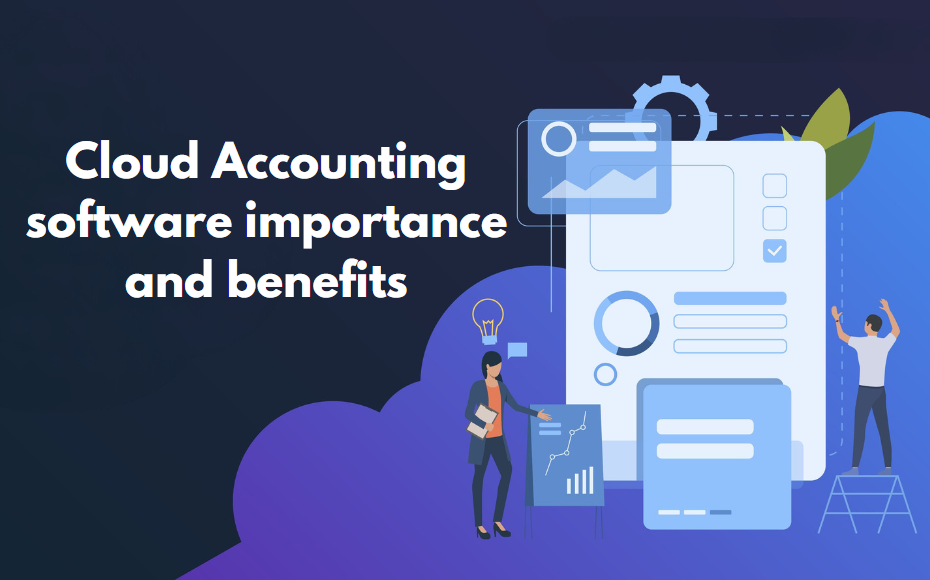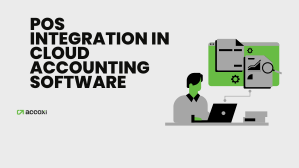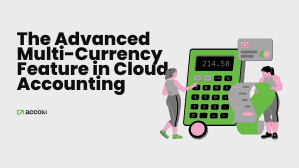

March 15, 2023

In this modern era, the tasks you carry out to keep your organization running have become digital. You must streamline the tax procedure, provide price quotations and bills to your clients, accept payments online, keep a record of your cash flow, and more. All of these activities are handled for your organization by accounting software. Cloud-based software has several advantages, such as the freedom to work from anywhere at any time, the automation of effortless manual operations, increased accuracy and compliance, and the capacity to expedite financial closing procedures.
Accounting software that is hosted on a remote server is referred to as cloud accounting software, online accounting software, or web-based accounting software. It could take time to upgrade to a cloud-based accounting system if your business still uses desktop software or spreadsheets for accounting. The functionality of desktop accounting is preserved in cloud accounting or online accounting, which extends to desktop accounting by moving the entire process there.
With a cloud accounting system, the provider handles hosting and upgrading your accounting software. Any cloud-based system has several benefits, which include allowing authorized users to access up-to-date, accurate financial data while traveling or from home. Additionally, some systems offer more sophisticated features, like extensive automation of accounting procedures.
Business owners no longer have to deal with time-consuming software installation, backups, and other administrative procedures because cloud accounting software is accessed online. To run your accounting software, you don't need to invest in or maintain servers or other IT infrastructure. You don’t need to perform regular backups of crucial financial data because they are automatically performed by your accounting provider. Employees can spend more time on the productive tasks that expand your company by spending less time on administration.
You always have the most recent version of the software because it is hosted on the cloud. The cloud service provider automatically updates the accounting program to reflect modifications to tax laws and accounting standards as well as to provide new capabilities. You won't need to worry about updating your software to keep current because you'll always have access to the most recent version whenever you log in.
Many accounting and banking tasks are automated by cloud-based accounting platforms, reducing manual work. For Example, the software can automatically produce recurring invoices, pay subscriptions, import bank, and credit card transactions, generate reports, and payment transactions to the correct ledger.
By generating accurate financial statements, quarterly estimates, and annual tax compliance, cloud accounting platforms help private and public organizations with tax compliance. By doing this, business owners can avoid under-reporting their tax obligations, which could result in audits or penalties, or over-reporting and overpaying. Cloud computing systems also assist in ensuring compliance with all applicable tax laws by automating computations for both domestic and international tax calculations. To adhere to established accounting standards, several top cloud accounting solutions even automate revenue recognition.
The cloud-based accounting software like Accoxi comes with the features of cloud accounting which helps organizations to manage inventory, banking, sales, and expenses.
| Legacy Accounting |
Cloud Accounting |
|
Legacy Accounting system is an out-of-date software application that uses outdated technology to manage modern business requirements. The purpose of legacy technology was to increase productivity and simplify day-to-day tasks. |
Cloud accounting is enterprise resource planning software that is delivered over the internet. It enables businesses a nearly limitless capacity to scale and innovate while providing access to their mission-critical applications at any time, from anywhere. |
| Legacy Accounting systems use computer machines and servers to manage organizational processes. | Cloud Accounting is an enterprise-grade, single solution managed by powerful data centers. |
| In Legacy Accounting, new technologies are not supported by your software, and the manufacturer takes a very long time to add new features to the system. | Cloud Accounting runs on the vendor's cloud platform and automates financial and operational business processes, allowing businesses to meet modern consumers' expectations. |
|
In Legacy Accounting you are required to buy the software and hardware upfront. |
Cloud Accounting is mostly bought as Software as a Service (SaaS) |
| Legacy Accounting requires hardware installation and an IT professional team because it is much more complex to implement. | Implementation of Cloud Accounting does not require any hardware installation. |
The following are the limitations of Traditional Accounting Software,
Only you can access information from the selected computers. Data frequently transfers between machines when they are not on the same server using backup files and/or USBs. This will increase the risk of which data is not reliable. Also, there is a greater chance that the data is insecure when the file is transferred back and forth. Either passwords are missing from the files, or the backup is obtained by the wrong individuals.
Even though some systems support multiple users, you cannot update some modules while another person is logged into the system. For instance, if you've ever attempted to update your sales module while another user is still logged into the system, this problem will be probably familiar to you. When this happens, authorized users are unable to access financial and client information while the other user is updating. Cloud-based software like Accoxi has real-time access to your data, and updating and managing will be easy for organizations.
Every year, new versions of the software are launched. Due to these improvements, installing the new version takes more time than before, and depending on the accounting software in use, it may also cost more money.
Software is not always updated when a new version is available. Many customers decide against making any changes to their accounting software. For instance, payroll tables age out or are no longer supported by the accounting software being used, this causes its own set of problems.
Backups are for creating a copy of data that can be retrieved whenever we require it. Many clients forget to perform regular backups and this leads to huge risk. The data in the system will get deleted if there are any bugs in the system or if the system stops working.
Cloud computing gives access from any location where you can access the internet. Accoxi is an accounting software that is beneficial for multiorganization accounting, branch management, inventory management, easy invoicing, and many more. If you are looking for exceptional cloud computing software, Accoxi is the best solution it handles all accounting features efficiently. Connect with us to know more about Accoxi.


